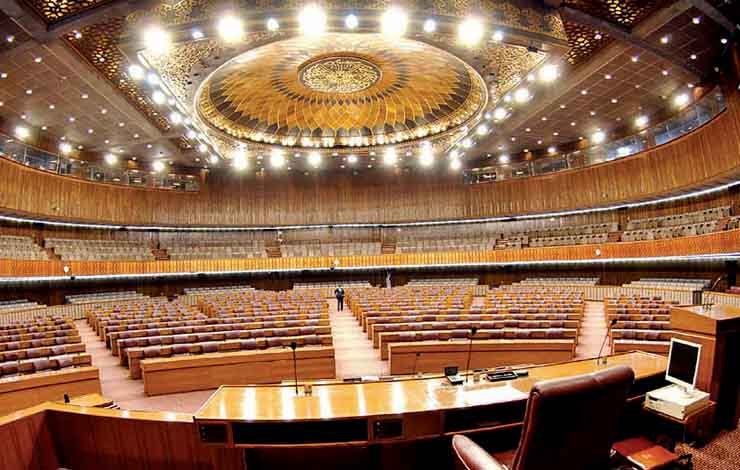Govt Fails to Maintain Quorum in Pricey NA Session
According to a rough estimate, a single session of the lower house cost Rs 40 million to the national treasury

The problem of maintaining quorum in the pricey session of national assembly (NA) has remained a daunting task for the Pakistan Tehreek-e-Insaf (PTI) government since it came into power on August 12, 2018.
For maintaining minimum quorum, one-fourth, 86, of 342 members of the lower house are required to be occupying their seats.
The lawmakers of the ruling party have remained failed to maintain the quorum in the lower house of the parliament and the sight of empty benches was visible again in the session of August 10.
Read Also
Illegal Parking Issue in Karachi Reaches Acme
The session just had the presence of 8 lawmakers.
According to a rough estimate, a single session of the lower house cost Rs 40 million to the national treasury.
The same somber look of the NA was witnessed in the budget session of June 22.
Interestingly, the opposition lawmakers had outnumbered the government members by 14 to 2.
According to rules of procedure of National Assembly, the session is suspended until one-fourth of the total membership of the house is not present when the attention of the chairperson is drawn to it.
The bells are rung for five minutes and the session is eventually suspended for the next working day if the quorum remains unavailable.
It is pertinent to note that a member desirous of obtaining leave of absence from NA sitting shall has to write to the speaker stating reasons for it.
An interesting instance
Once during a question-answer session in NA, the opposition members learned that Federal Energy Minister Omar Ayub was not present in the house for answers.
At this, the opposition members got furious while the treasury benchers got alarmed over it.
Several government members walked out and then PTI MNA Junaid Akbar pointed out quorum and the proceeding was adjourned.
The rules of procedure say that the meetings of NA should be conducted at least for 130 days in a year in at least three sessions to complete the parliamentary year.



